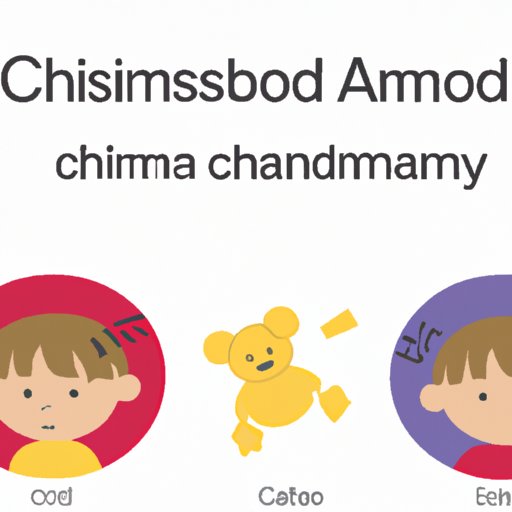Introduction
Many of us have hazy, fragmented memories of our childhood, but for some, there is almost nothing there. Childhood amnesia, also known as infantile amnesia, is a common issue where adults have little to no memory of their early years. This can be frustrating for individuals who crave a sense of identity and feel disconnected from their past. This article will explore the science behind why some people can’t remember their childhood, techniques for improving memory recall, coping strategies, and more.
The Forgotten Years: Understanding Why We Can’t Remember Our Childhood
Childhood amnesia is when a person has little to no memory of their life prior to the ages of 2 to 4 years old. While this phenomenon is common, the exact reasons for it are not completely understood. Some theories suggest that the brain simply isn’t developed enough to store long-term memories, while others propose that early experiences are not processed in the same way as those in later life.
Unlocking the Mystery of Lost Memories: Why Some People Can’t Recall Their Childhood
Several factors can contribute to childhood amnesia. One common theory suggests that our brains prioritize important information, discarding irrelevant or repetitive content. Another theory suggests that language and communication barriers can impact the way we encode and remember memories. Other factors, such as stress, trauma, neglect, or simply a lack of significant life events during early childhood, can also play a role.
From Lost to Found: Techniques for Improving Your Childhood Memory
If you’re looking to improve your memory recall, there are several practical tips and strategies you can try. Sensory stimulation, such as smelling familiar scents or listening to music from your childhood, can help to trigger memories. Looking at photos or watching home videos can also provide visual cues to help you remember. Additionally, writing down your memories in a journal or speaking with friends or family who knew you as a child can help to improve memory retention.
The Science of Recall: Exploring the Brain’s Ability to Remember Childhood
Memory is a complex process that involves several brain regions. Memories are initially encoded in the hippocampus, a part of the limbic system, and then consolidated into long-term storage in the cerebral cortex. While our brains prioritize certain information, there is evidence to suggest that the memories that aren’t initially preserved can still be retrieved through the reconsolidation process. This means that even if a memory has not been recalled for years, it can still be accessed with the right triggers.
When the Past is a Blur: Coping with Childhood Amnesia
For many, not being able to remember their childhood can cause feelings of loss, confusion, and disconnection from their identity. To cope with these feelings, it’s important to acknowledge and process them. Meditation, therapy, and creative outlets such as art or music can help to reduce stress and improve mood. Additionally, focusing on the memories that are recalled, rather than dwelling on what is lost, can help to create a sense of continuity and connection to the past.
Breaking Through the Wall: Strategies for Remembering Your Forgotten Childhood
If you’re struggling to recall your early years, there are advanced techniques that can be helpful. Guided meditation and hypnosis can be effective methods for accessing repressed memories, though it’s important to work with a reputable professional. In some cases, seeking professional therapy can help uncover the underlying emotional or psychological barriers that may be contributing to memory loss.
Conclusion
While childhood amnesia may be frustrating, there are ways to improve memory recall and cope with the emotional impact of not remembering. By utilizing sensory cues, connecting with friends and family, and seeking out professional help if necessary, you can create a sense of connection to your past that can provide a greater understanding of your present self.
(Note: Is this article not meeting your expectations? Do you have knowledge or insights to share? Unlock new opportunities and expand your reach by joining our authors team. Click Registration to join us and share your expertise with our readers.)
